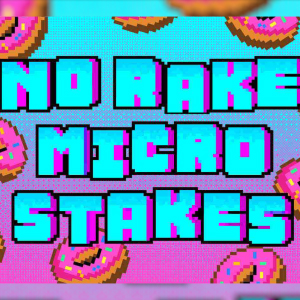Poker Opponent Too Hard to Read? 4 Smart Strategies That Actually Work
5 months ago

29 Apr
In the high-stakes world of poker, success often hinges on your ability to read your opponents. From decoding betting patterns to spotting subtle physical tells, experienced players seem to have a sixth sense for what others are holding. But what happens when your opponent seems unreadable, or when playing online makes it more difficult to rely on typical tells? Here we go through six smart strategies to help you outplay even the most unreadable rivals at the table.
1. Shift Your Focus from Tells to Ranges
Trying to spot a tell like a twitchy eye or a nervous shuffle sounds like a good strategy in theory, but it isn’t always an option. Experienced players often maintain excellent poker faces or use such tells to bluff, so relying on physical tells only is not enough of a strategy. And if you are playing online, you don’t even have the option to see your opponents.
When the visual tells let you down, it’s time to change your approach: stop looking for that one big clue and start thinking in ranges. A hand range is the spectrum of possible hands an opponent might have in a given situation. This is based on how they’ve acted so far, their position at the table, and their overall playing style. For example, someone raising from early position might have a much tighter range (like big pocket pairs), while a button raise could indicate a wider, more speculative set of holdings.
This way of thinking is especially critical in online poker, which is a huge driver of the modern gambling industry. As players continue migrating to online platforms that offer poker rooms and online casino games (source: https://gamblingindustrynews.com/online-casinos/), relying on strategic concepts like ranges becomes essential. Learning to assign and adjust ranges not only makes you more accurate, but it also removes the stress of trying to guess a single hand.
2. Pay Attention to Bet Sizing Patterns
Even the toughest opponents often give away subtle clues through how much they bet. Are they betting big with strong hands and smaller when bluffing, or vice versa? While the most experienced players might switch it up, most will fall into patterns you can spot over time. Train yourself to detect such patterns.
Try observing whether their bet sizes change depending on the street or situation. Are they making pot-sized bets on the river only when they’re holding a good hand? Are their continuation bets always the same size? And so on.
3. Use the Power of Position
If you can't read your opponent easily, you can use your position as a weapon. Acting last in a hand (known as being “in position”) allows you to gather more information before making decisions. It also gives you control over the size of the pot.
Players in position generally perform better over time. Several studies show that positional advantage adds several points to your win rate over the long term. It’s not just a theoretical edge; it translates to profit. If you’re up against someone unreadable, favor situations where you act last. It will give you more flexibility and time to adapt.
4. Manipulate the Pace of Play
If your opponent is unreadable, consider disrupting their rhythm. Poker is a psychological game, and most players – especially tight, controlled ones – prefer a predictable pace. By speeding up or slowing down your play, you can throw them off balance.
Research into behavioral decision-making (like that found in Kahneman’s Thinking, Fast and Slow) suggests that disrupting automatic decision processes forces people into deeper thinking, where they’re more likely to make errors. When your opponent is too calm, make them uncomfortable by breaking their timing expectations.
Final Thoughts: Adapt, Don’t Tilt
When facing a hard-to-read opponent, frustration can creep in. But poker is a game of adaptation, not control. Instead of obsessing over what you don’t know, focus on what you can control and make use of, such as your strategy, position, mindset, and preparation.
Even the best players encounter rivals they can’t decode right away. The key is to stay flexible, keep gathering information, and adjust your tactics accordingly. With the right approach, you don’t need to read your opponent like a book, or even see them, you just need to play a better game.







Comments
You need to be logged in to post a new comment